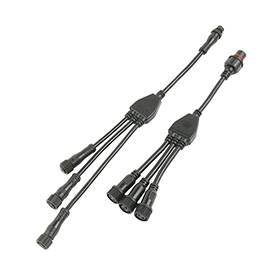News


News

4 Wire vs 3 Wire Waterproof Connectors: Key Differences and Applications
Release time:2025-06-07
viewed:354
The choice between a 3 wires connector waterproof and a 4-wire waterproof connector depends on specific electrical needs and environmental conditions. While both ensure reliable connections in wet or harsh environments, their wire count dictates distinct applications. This article compares their performance, durability, and ideal use cases.

A 3 wires connector waterproof typically handles power (live/neutral) and ground, making it suitable for basic AC/DC circuits. In contrast, 4-wire variants add a second power line or signal wire, enabling more complex systems like PWM dimming or data transmission.
Both types share IP67/IP68 ratings, but the 3 wires connector waterproof often has simpler sealing mechanisms due to fewer internal contacts. This can translate to marginally better long-term waterproofing for high-vibration applications (e.g., marine lighting).
3 wires connector waterproof: Ideal for LED strip lighting, outdoor fixtures, and low-voltage solar systems where simplicity is key.
4-wire connectors: Used in RGBW LED controls, motorized equipment, or sensors requiring separate power and signal paths.
The 3 wires connector waterproof is generally more affordable and easier to troubleshoot due to reduced wiring complexity. However, 4-wire versions offer future-proofing for upgradable systems.
Selecting between these connectors hinges on balancing functionality and environmental demands. For projects needing minimal wiring, the 3 wires connector waterproof remains a robust, cost-effective solution